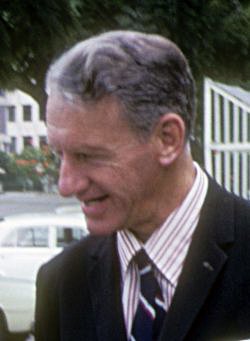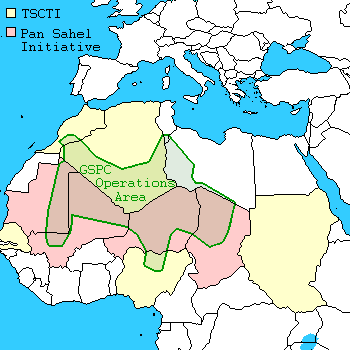|
Squatting In Zimbabwe
Squatting in Zimbabwe is the settlement of land or buildings without the permission of the owner. Squatting began under colonialism. After Zimbabwe was created in 1980, peasant farmers and squatters disputed the distribution of land. Informal settlements have developed on the periphery of cities such as Chitungwiza and the capital Harare. In 2005, Operation Murambatsvina (Operation Drive out filth) evicted an estimated 700,000 people. History Squatting on the territory that would later become Zimbabwe began under colonialism and was governed by laws such as the 1894 Matebeleland Order-in-Council, the 1898 Southern Rhodesia Order-in-Council, the Land Apportionment Act of 1930, 1930 Land Apportionment Act, and the 1969 Land Tenure Act. Starting in the late 1970s, informal settlements appeared on the periphery of Harare and were routinely demolished, except for Epworth, Zimbabwe, Epworth which survived because of its size (about 50,000 people). When the government purchased land ... [...More Info...] [...Related Items...] OR: [Wikipedia] [Google] [Baidu] |
Zimbabwe (orthographic Projection)
file:Zimbabwe, relief map.jpg, upright=1.22, Zimbabwe, relief map Zimbabwe, officially the Republic of Zimbabwe, is a landlocked country in Southeast Africa, between the Zambezi and Limpopo Rivers, bordered by South Africa to the south, Botswana to the southwest, Zambia to the north, and Mozambique to the east. The capital and largest city is Harare, and the second largest is Bulawayo. A country of roughly 16.6 million people as per 2024 census, Zimbabwe's largest ethnic group are the Shona people, Shona, who make up 80% of the population, followed by the Northern Ndebele people, Northern Ndebele and other #Demographics, smaller minorities. Zimbabwe has 16 official languages, with English, Shona language, Shona, and Northern Ndebele language, Ndebele the most common. Zimbabwe is a member of the United Nations, the Southern African Development Community, the African Union, and the Common Market for Eastern and Southern Africa. The region was long inhabited by the San people, ... [...More Info...] [...Related Items...] OR: [Wikipedia] [Google] [Baidu] |
Mabvuku
Mabvuku is a suburb east of Harare, the capital city of Zimbabwe. History Old Mabvuku traces its origins back to the 1950s, with its oldest school, Donnybrook Primary School, established in 1954. New Mabvuku, on the other hand, was developed beginning in 1972 by the Salisbury City Council. Before Zimbabwe’s colonization, Mabvuku was home to the VaShawasha people of the Soko Mbire clan, who settled in the area approximately 300 years ago. This area remains their native homeland, and their heritage is preserved in the names of streets and roads in Old Mabvuku, such as Tingini, Godzonga, Marembo, Chauruka, Nyamare, Nyahuni, Chaitezvi, Nzwere, and Shambare. These names, along with the praise poetry of the Shona people compiled by Chatima, provide evidence of their historical presence. Mabvuku and its neighbouring suburb, Tafara, have a significant population of people of Malawian, Mozambican, and Zambian origin, many of whom migrated to the area seeking employment prior to Z ... [...More Info...] [...Related Items...] OR: [Wikipedia] [Google] [Baidu] |
Bulawayo
Bulawayo (, ; ) is the second largest city in Zimbabwe, and the largest city in the country's Matabeleland region. The city's population is disputed; the 2022 census listed it at 665,940, while the Bulawayo City Council claimed it to be about 1.2 million. Bulawayo covers an area of in the western part of the country, along the Matsheumhlope River. Along with the capital Harare, Bulawayo is one of two cities in Zimbabwe that are also Provinces of Zimbabwe, provinces. Bulawayo was founded by a group led by Gundwane Ndiweni around 1840 as the kraal of Mzilikazi, the Ndebele king and was known as Gibixhegu. His son, Lobengula, succeeded him in the 1860s, and changed the name to koBulawayo and ruled from Bulawayo until 1893, when the settlement was captured by British South Africa Company soldiers during the First Matabele War. That year, the first white settlers arrived and rebuilt the town. The town was besieged by Ndebele warriors during the Second Matabele War. Bulawayo attaine ... [...More Info...] [...Related Items...] OR: [Wikipedia] [Google] [Baidu] |
The Guardian
''The Guardian'' is a British daily newspaper. It was founded in Manchester in 1821 as ''The Manchester Guardian'' and changed its name in 1959, followed by a move to London. Along with its sister paper, ''The Guardian Weekly'', ''The Guardian'' is part of the Guardian Media Group, owned by the Scott Trust Limited. The trust was created in 1936 to "secure the financial and editorial independence of ''The Guardian'' in perpetuity and to safeguard the journalistic freedom and liberal values of ''The Guardian'' free from commercial or political interference". The trust was converted into a limited company in 2008, with a constitution written so as to maintain for ''The Guardian'' the same protections as were built into the structure of the Scott Trust by its creators. Profits are reinvested in its journalism rather than distributed to owners or shareholders. It is considered a newspaper of record in the UK. The editor-in-chief Katharine Viner succeeded Alan Rusbridger in 2015. S ... [...More Info...] [...Related Items...] OR: [Wikipedia] [Google] [Baidu] |
Anna Tibaijuka
Anna Kajumulo Tibaijuka (; born 12 October 1950) is a Tanzanian politician and United Nations official. She was a Chama Cha Mapinduzi (CCM) Member of the National Assembly for Muleba South constituency during 2010 to 2020 and served as the Minister of Lands, Housing and Human Settlement Developments from 2010 to 2014. Tibaijuka is also a former Under-Secretary-General of the United Nations and executive director of the United Nations Human Settlements Programme (UN-HABITAT). She was the second highest ranking African woman in the UN system, after Deputy Secretary-General Asha-Rose Migiro, until her resignation in 2010 to run for political office in Tanzania. Early life and education Tibaijuka was born on 12 October 1950 in Kagabiro, Muleba District, Tanganyika Territory (now a part of Kagera Region of Tanzania) to small-holder farmers. She was initially admitted at the University of Dar-es-Salaam in April 1975 to pursue a Bachelor of Science degree. She received a BSc from S ... [...More Info...] [...Related Items...] OR: [Wikipedia] [Google] [Baidu] |
Robert Mugabe
Robert Gabriel Mugabe (; ; 21 February 1924 – 6 September 2019) was a Zimbabwean revolutionary and politician who served as Prime Minister of Zimbabwe from 1980 to 1987 and then as President from 1987 to 2017. He served as Leader of the Zimbabwe African National Union (ZANU) from 1975 to 1980 and led its successor political party, the ZANU – Patriotic Front (ZANU–PF), from 1980 to 2017. Ideologically an African nationalist, during the 1970s and 1980s he identified as a Marxist–Leninist, and as a socialist during the 1990s and the remainder of his career. Mugabe was born to a poor Shona family in Kutama, Southern Rhodesia. Educated at Kutama College and the University of Fort Hare in South Africa, he then worked as a schoolteacher in Southern Rhodesia, Northern Rhodesia, and Ghana. Angered by white minority rule of his homeland within the British Empire, Mugabe embraced Marxism and joined African nationalists calling for an independent state controlled by t ... [...More Info...] [...Related Items...] OR: [Wikipedia] [Google] [Baidu] |
Democratic Republic Of Congo
The Democratic Republic of the Congo (DRC), also known as the DR Congo, Congo-Kinshasa, or simply the Congo (the last ambiguously also referring to the neighbouring Republic of the Congo), is a country in Central Africa. By land area, it is the second-largest country in Africa and the 11th-largest in the world. With a population of around 112 million, the DR Congo is the most populous nominally Francophone country in the world. French is the official and most widely spoken language, though there are over 200 indigenous languages. The national capital and largest city is Kinshasa, which is also the economic center. The country is bordered by the Republic of the Congo, the Cabinda exclave of Angola, and the South Atlantic Ocean to the west; the Central African Republic and South Sudan to the north; Uganda, Rwanda, Burundi, and Tanzania (across Lake Tanganyika) to the east; and Zambia and Angola to the south. Centered on the Congo Basin, most of the country's terrain is co ... [...More Info...] [...Related Items...] OR: [Wikipedia] [Google] [Baidu] |
Thabo Mbeki
Thabo Mvuyelwa Mbeki (; born 18 June 1942) is a South African politician who served as the 2nd democratic president of South Africa from 14 June 1999 to 24 September 2008, when he resigned at the request of his party, the African National Congress (ANC). Before that, he was Deputy President of South Africa, deputy president under Nelson Mandela from 1994 to 1999. The son of Govan Mbeki, an ANC intellectual, Mbeki has been involved in ANC politics since 1956, when he joined the African National Congress Youth League, ANC Youth League, and has been a member of the party's National Executive Committee of the African National Congress, National Executive Committee since 1975. Born in the Transkei, he left South Africa aged twenty to attend university in England, and spent almost three decades in exile abroad, until the ANC was unbanned in 1990. He rose through the organisation in its information and publicity section and as Oliver Tambo's protégé, but he was also an experienced d ... [...More Info...] [...Related Items...] OR: [Wikipedia] [Google] [Baidu] |
Africa Union
The African Union (AU) is a continental union of 55 member states located on the continent of Africa. The AU was announced in the Sirte Declaration in Sirte, Libya, on 9 September 1999, calling for the establishment of the African Union. The bloc was launched on 9 July 2002 in Durban, South Africa. The intention of the AU was to replace the Organisation of African Unity (OAU), established on 25 May 1963 in Addis Ababa by 32 signatory governments; the OAU was disbanded on 9 July 2002. The most important decisions of the AU are made by the Assembly of the African Union, a semi-annual meeting of the heads of state and government of its member states. The AU's secretariat, the African Union Commission, is based in Addis Ababa. The largest city in the AU is Lagos, Nigeria while the largest urban agglomeration is Cairo, Egypt. The African Union has more than 1.3 billion people and an area of around and includes world landmarks such as the Sahara and the Nile. The primary working l ... [...More Info...] [...Related Items...] OR: [Wikipedia] [Google] [Baidu] |



